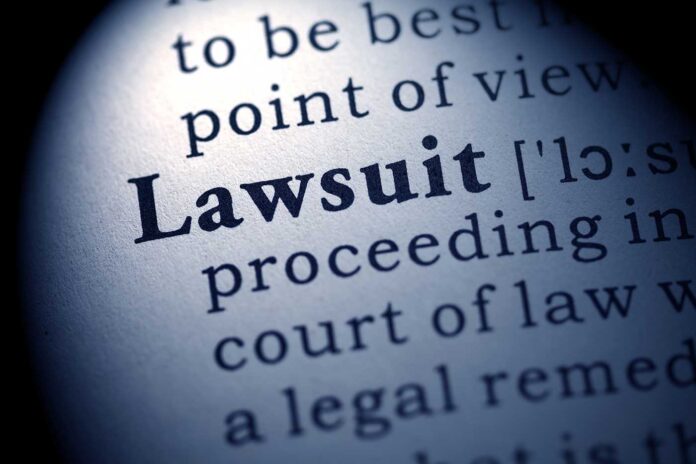For the second time in two years, a federal judge has struck down an LGBT-inclusive antibias rule for Pennsylvania attorneys. On March 25, in a 78-page ruling, U.S. District Judge Chad F. Kenney nullified the rule, claiming it violates free-speech rights.
Philadelphia attorney Zachary S. Greenberg has challenged the rule since August 2020. In December 2020, Kenney nullified an initial version of the rule that was adopted by the Pennsylvania Supreme Court. But the court revised the rule in July 2021 to clarify that biased conduct — not free speech — is prohibited. Kenney nullified the revised rule last week, asserting that it still doesn’t pass constitutional muster.
The revised rule states: “It is professional misconduct for a lawyer to, in the practice of law, knowingly engage in conduct constituting harassment or discrimination based upon race, sex, gender identity or expression, religion, national origin, ethnicity, disability, age, sexual orientation, marital status, or socioeconomic status.” Comments published in conjunction with the rule seek to ensure the rule is focused on prohibiting biased conduct, not free speech. However, Kenney said the assurances weren’t sufficient to render the rule constitutional.
“In conclusion, the court finds that Rule 8.4 (g) is an unconstitutional infringement of free speech according to the protections provided by the First Amendment,” Kenney wrote. “The court also finds that Rule 8.4 (g) is unconstitutionally vague under the Fourteenth Amendment.”
The rule remains posted on the Pennsylvania Disciplinary Board’s website. A spokesperson for the board said the rule will remain posted indefinitely but won’t be enforced. She had no comment on whether an appeal would be filed, or whether a new rule would be adopted. As of press time, a clarification that the rule isn’t being enforced wasn’t posted on the board’s website.
Discipline for an offending attorney would range from a reprimand to dismissal, if the rule ultimately gets enforced.
Defendants in the case include 12 members of the state Supreme Court’s Disciplinary Board. They are: Celeste L. Dee, John P. Goodrich, Jerry M. Lehocky, Christopher M. Miller, Robert Mongeluzzi, Gretchen M. Mundorff, John C. Rafferty Jr., Dion G. Rassias, Robert L. Repard, Eugene F. Scanlon Jr., David S. Senoff and Shohan H. Vance.
After Kenney nullified the rule in December 2020, the defendants filed an appeal with the Third Circuit Court of Appeals. But they withdrew the appeal in March 2021, without explanation.
Last week, Greenberg expressed agreement with Kenney’s ruling. “The court recognized how the First Amendment’s freedom of speech protects the minority voices of the legal community,” Greenberg said, in an email. “Attorneys must remain free to speak, write, and advocate for unpopular ideas, even those that offend others. Far from addressing harassment or discrimination, the revised rule targeted the dissenting voices of our profession, promising punishment for those who challenge the status quo. We are glad to see the court strike down this misguided attempt to stifle core civil liberties.”
Kenney, who’s an appointee of former President Donald J. Trump, didn’t respond to an email seeking comment.
The Philadelphia Bar Association issued this statement: “This Association has long supported the addition of an anti-discrimination provision to the Rules of Professional Conduct because we believe it is deeply important that all individuals who participate in the justice system — whether they are judges, lawyers, litigants, witnesses or employees — are able to do so free of discrimination and harassment.
“The rule proposed by the Supreme Court of Pennsylvania would prohibit a lawyer engaged in the practice of law from knowingly engaging in conduct constituting harassment or discrimination based on race, sex, gender identity or expression, religion, national origin, ethnicity, age, sexual orientation, marital status or socioeconomic status. It is a variation of Rule 8.4 (g) of the American Bar Association’s Model Rules of Professional Conduct and would have brought our Commonwealth in line with many states that have already adopted similar provisions.
“We were disappointed to hear of [Kenney’s] ruling [last] week blocking the implementation of the Rule 8.4(g). We hope the Supreme Court of Pennsylvania will continue to pursue measures to make clear that harassment and discrimination by attorneys will not be tolerated. And we stand ready to assist with this endeavor.”
Thomas W. Ude Jr., legal and public policy director at Mazzoni Center, blasted Kenney’s ruling. “Based on a complaint by an attorney [Greenberg] who does not practice law, and who makes wildly speculative assertions, this ruling nullifies not only the current rule — but sets a standard that leaves little room for any way to say that bigotry and harassment are foul play,” Ude said, in an email. “Under that theory, attorneys are free to engage in any advocacy they choose — using racial, religious, or anti-LGBTQ slurs against opponents, attorneys, and presumably judges. This sweeping ruling puts fair play off-limits and turns courtrooms into arenas where personal attacks are permissible. Instead of resolving disputes by seeking truth and justice, trials can — or even should — become a no-holds-barred brawl. Rule 8.4(g) was adopted because it undermines trust in the legal system to allow bigotry to be used as a trial strategy. Harassment of attorneys, witnesses, or judges because of race, religion, sex, gender identity, sexual orientation, and other characteristics doesn’t just make it harder for people to seek justice — it makes them believe that justice is hopeless. I hope that the Disciplinary Board appeals this ruling. Witnesses, attorneys, and other folks should not face strategic slurs and harassment based on one man’s imaginary fears that he might get criticized for making offensive speeches outside the courtroom.”
